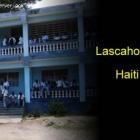ADVERTISEMENT
Health - Haiti Observer Blog
Health, Haiti Observer Blog. Read the following articles about Health
Cervical Cancer Remains Common Killer of Women in Haiti
Cervical cancer is a cancer of the cervix, it commonly occurs in women over the age of 30 when usually some abnormal cells on the cervix grow out of control which never die but continue to grow through cell division. It occurs by a group of virus called human papillomavirus, or HPV, through sexual contact, but can be successfully treated if it is identified and taken care of early. Cervical cancer is one of the main causes of cancer deaths in the world with a 50% mortality rate all around the world. It is also known as the 'disease of poverty' as it is more prevalent among the poor; 85% of cervical cancer occurs in the developing world alone.
Cervical cancer and breast cancer are leading killers of Haitian women
According to Dr. Jean Ronald Cornelly Director of Oncology Program at the Ministry of Public Health and Population in Haiti cancer is a major health problem in Haiti. Women between the ages of 40 and 50 years have a bigger chance of dying from either cervical cancer and breast cancer than anything else.
Kreyol:
Eske nou konnin plis fanm mou ak Kanser ke tout lot bagay an Ayiti. Anpil fanm Ayisyen ki mouri, se pa Djab ki pran yo, se souvan yon kanser ki fini ak moun sa yo.
On 4th February, 2015, Dr. Jean Ronald Cornelly, the Director of Oncology Program at the Ministry of Public Health and Population (MSPP) has said that cancer, like globally, is a serious health threat in Haiti that needs immediate attention. Most of the cancer cases in women are cervical and breast cancers and commonly, it becomes life threatening between 40 and 50 years of age. Dr. Jean Cornelly while addressing on the World Cancer Day, has reminded that with cancer, Haiti has one of the highest incidence and mortality rate in the world, because we are not well equipped to diagnose the disease at the early stage and neither have we had structured program nor good treatment for the malady. He cited one recent report from the World Health Organization (WHO) which suggests that as per regional statistics on the Latin American and Caribbean zone, Haiti has the highest incidence of this deadly disease. Out of 100,000 cases, 93.2 women suffer from cervical cancer and of that, 53.2 women dies from it. Dr Vincent De Gennaro, the Head of Internal Medicine for the project Medishare, has explained that the reason for such high mortality rate is that 80% of the patients never report until the disease is at an advanced stage.
Around-the-clock medical care now available in Haiti via webcam or Telemedicine
There is a chance that your doctor will not be in the same room with you soon. In addition, you might not be able to touch him/her either. This actually is taking place as we speak in Haiti.
Technology has reached Haiti n ways we could not even imagine few years ago. Thanks to the University of Miami Miller School of Medicine, Haitian currently living in Haiti now have access to some of the best doctors in the world via web cam.
UM internist, Dr. Antonia Eyssallenne, who flies to Port-au-Prince regularly, says doctors at Bervard Mevs can perform the stabilization procedures but ". . . there are cases that require more sophisticated and specialized attention to manage properly." The UM trauma specialists' job is to advise and support doctors they are performing the procedures correctly. The benefit of the telemedicine service is that doctors' comfort and confidence levels increase with a virtual trauma specialist at hand, monitoring the trauma treatment.
University of Miami's Bascom Palmer study on glaucoma in Haitian-Americans
According to a recent published study almost 26% of Haitian-Americans are showing signs of glaucoma, ranging from early to advanced stages of the disease. Glaucoma is defined by a gradual atrophy of the optic nerve that can lead to blindness. The good news is that it can be screened in a healthcare community clinic and treated to forestall any further deterioration of the optic nerve.
Associate Professor of Ophthalmology at Miami University's Bascom Palmer Eye Institute, Dr. Richard K. Lee, headed the published study "Glaucoma Screening in the Haitian Afro-Caribbean Population of South Florida". What the data revealed is that older and also younger patients both suffer from Glaucoma. In younger study participants, under 40 years of age, there were signs of high eye pressures and questionable changes to the optic disc. Furthermore, 32% of all study participants showed above-normal eye pressures, which in the end can effect extreme damage to the eye, leading to blindness. Study participants received referrals for further care with their doctors and ophthalmologists, along with participants' test results.
UM's Miller School of Medicine providing telemedicine in Haiti via webcam
Hospital Bernard MEVS in Port-au-Prince is the only critical care and trauma hospital in Haiti. The hospital has been frequently visited by medical volunteers every week from across America and Canada.
Recently, in last December, the UM's Miller School of Medicine started has started a 'telemedicine' program where the physicians from Miami will consult and guide the doctors in Port-au-Prince everyday. The hospital is visited by a large number of adult and pediatric patients every day, but it often lacks necessary supplies and expertise. "Telemedicine" is sometimes referred as "Telehealth", an offshoot of the space program; it was developed by the National Aeronautics and Space Administration (NASA) in the 1960s to serve the astronauts. After the 2010 earthquake, LifePaths Global Alliance (LGA), an organization dedicated to helping disadvantaged communities in the Caribbean and Central America, realized that basic medical care in the rural and remote areas of Haiti was significantly lacking.
Matt and Julie Reichard to open Heaven's Angels Pediatric Clinic in Jacmel
Heaven's Angels Pediatric Clinic in Jacmel is a kid focused medical clinic that is going to be built by ministry of 'Freedom Global Outreach' (FGO) at a large primary school in Jacmel named 'Vie De France School'. 'Freedom Global Outreach' exists to rescue, shelter, mentor abandoned and orphaned children in Christian homes. They teach and assist to meet their physical and spiritual needs and help to break the cycles of poverty in their lives. The clinic will start in 2015 with two full time Registered Nurses-- Julie Reichard and Megan Brown with a team of doctors, other nurses and supporting staff from U.S and Canada. FGO never retain or withheld any administrative charges or fees from the support of a missionary or mission project. The project cost for the Heaven's Angels Pediatric Clinic at Jacmel has been estimated at $12,000.
Taiwan Gives Haiti $100,000 to Eliminate Chikungunya
Taiwan, Haiti's ally for more than 50 years, is stepping up to help Haiti fight a new epidemic, the Chikungunya virus, whose first case was reported in May 2013. So far estimates range from 39,000�'40,000 of the Haitian populace, afflicted with the debilitating disease. The statistics were released by the Ministry of Foreign Affairs' Department, Deputy Director General, Florencia Hsie. The Ministry covers South American Caribbean Affairs.
The Taiwanese government has given Haiti $100,000 USD to use for methods to halt the virus in its tracks. Two types of mosquitoes are carriers of Chikungunya, the Asian Tiger and Aides Aegypti. The technique will be to disinfect the places where they breed, so their eggs cannot hatch. It goes to the root of the problem and is a preventive measure.
Did you know that type 2 Diabetes is most common among Haitians
A study recently found that one of the most common illnesses among Haitians is Diabetes, with the most prevalent called type 2. The illness is also associated with a variety of others such as heart disease, kidney disease and diabetic eye disease.
Diabetes is a highly manageable disease but requires a lot of self-care. The most effective intervention strategy for Diabetes in Haiti, intervene early. There are still many problems facing most Haitians today, and diabetes isn't the least of them.
A merely cursory look at the system of health care still present in the country shows that, because most Haitians have no access to financial support for disabilities and don't collect unemployment, their diseases remain solely their problem. As such, early detection, before a disease like diabetes has progressed and had time to cause great complications, may mean the difference between life and death.
In Haiti where the sick is cared for by families, how would we prevent a spread of Ebola
As we all have been have been observing the development of the ebola virus, some would say it is just a matter of time before the first case appears in Haiti. Although this is something I would not wish on the country, it is important to consider this option as it is a possibility.
What will the Haitian authorities do if ebola appears in Haiti? Let's share some critical information about the virus.
One, we all know that it only becomes contagious after the infected person start showing symptoms. if someone is infected with the virus but does not show any symptoms, that person can't infect another.
Petit-Goave Residents Beneficiaries of Project to Improve Health
Petit-Goâve is a small town of 12,000 residents, located in the Ouest Department, lying 42 miles from Port-au-Prince. When the 2010 earthquake hit, Petit-Goâve suffered serious damage, particularly from an intense aftershock of 5.9 magnitude. Its epicenter was virtually beneath the town.
A week after the January 12th earthquake, military ships coming from Spain and the U.S. arrived with relief aid for Petit-Goâve. In addition, Aid for Haiti, a not-for-profit American relief agency, arranged for temporary medical facilities and personnel to provide services to the community.
The one hospital Petit-Goâve contained was non-functioning in the aftermath of the quake. In response to the crisis, the Norwegian Red Cross sent its Emergency Response Unit to set up a field hospital. It has become a fully functioning medical facility, with two well-equipped surgery rooms, a fleet of ambulances, and emergency medical technicians. The hospitable also receives dependable electricity service.
Our objective is to share with you news and information about Haiti and the people of Haiti. Traditions, habits and the way we were or grew are alive in this site. We highly recommend that you Subscribe to our Newsletter and also share with us some of the things that are memorable and made us unique people.

 Black Friday Shopping Season
Black Friday Shopping Season  Lascahobas, Haiti
Lascahobas, Haiti  Haitian Creole Translation
Haitian Creole Translation  Haitian Thanksgiving
Haitian Thanksgiving  Haitians are a Proud People
Haitians are a Proud People